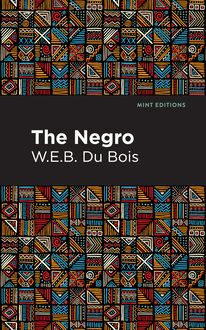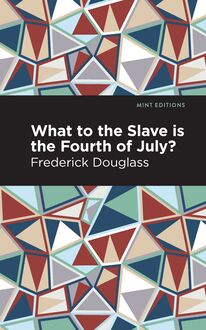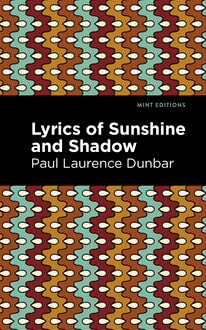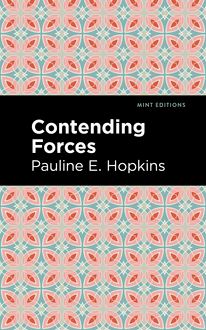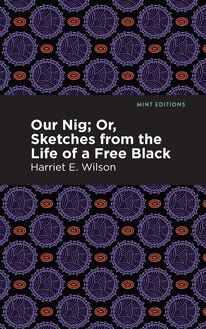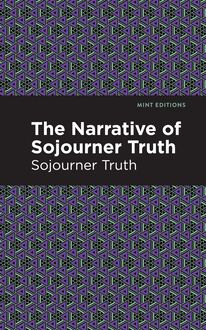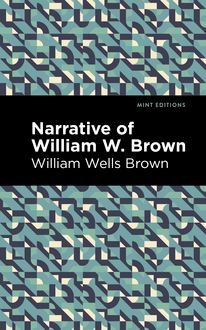-
 Univers
Univers
-
 Ebooks
Ebooks
-
 Livres audio
Livres audio
-
 Presse
Presse
-
 Podcasts
Podcasts
-
 BD
BD
-
 Documents
Documents
-
- Cours
- Révisions
- Ressources pédagogiques
- Sciences de l’éducation
- Manuels scolaires
- Langues
- Travaux de classe
- Annales de BEP
- Etudes supérieures
- Maternelle et primaire
- Fiches de lecture
- Orientation scolaire
- Méthodologie
- Corrigés de devoir
- Annales d’examens et concours
- Annales du bac
- Annales du brevet
- Rapports de stage
La lecture à portée de main
Vous pourrez modifier la taille du texte de cet ouvrage
Découvre YouScribe en t'inscrivant gratuitement
Je m'inscrisDécouvre YouScribe en t'inscrivant gratuitement
Je m'inscrisEn savoir plus
Vous pourrez modifier la taille du texte de cet ouvrage
En savoir plus

Description
“We’ve railed against injustice for decade upon decade, a lifetime of struggle and progress and enlightenment that we see etched in Fredrick Douglass’s mighty, leonine gaze.” -Barack Obama
“My Bondage and my Freedom, besides giving a fresh impulse to antislavery literature, shows upon its pages the untiring industry of the ripe scholar.”-William Wells Brown
My Bondage and my Freedom (1845), a classic of American History writing and one of the most influential and ennobling autobiographies ever written, was composed while Fredrick Douglas was at his heights as an orator and writer. At the time of writing, Douglass had also reached the pinnacle of his work as a leader in the abolitionist movement and as an influential newspaper publisher. This incisive and eloquent book is at once an extraordinary story of resilience and a meditation on power, education, and freedom.
The depictions of Fredrick Douglass’s early life on a Maryland slave plantation, the series of relocations and abuses under various overseers, and his eventual freedom are an extraordinarily vivid portrait of the United States leading up to the beginning of the Civil War. My Bondage and my Freedom is a brilliant account of a singular life and as well as a scathing reproach to one of the darkest episodes of American history.
With an eye-catching new cover, and professionally typeset manuscript, this edition of My Bondage and my Freedom is both modern and readable.
Sujets
Informations
| Publié par | Mint Editions |
| Date de parution | 08 octobre 2020 |
| Nombre de lectures | 0 |
| EAN13 | 9781513265513 |
| Langue | English |
| Poids de l'ouvrage | 1 Mo |
Informations légales : prix de location à la page 0,0500€. Cette information est donnée uniquement à titre indicatif conformément à la législation en vigueur.
Extrait
My Bondage and My Freedom
Frederick Douglass
My Bondage and My Freedom was first published in 1855.
This edition published by Mint Editions 2020.
ISBN 9781513264837 | E-ISBN 9781513265513
Published by Mint Editions®
minteditionbooks.com
Publishing Director: Jennifer Newens
Project Manager: Gabrielle Maudiere
Design & Production: Rachel Lopez Metzger
C ONTENTS E DITOR ’ S P REFACE I NTRODUCTION L IFE AS A S LAVE ? 1. C HILDHOOD 2. R EMOVED FROM M Y F IRST H OME 3. P ARENTAGE 4. A G ENERAL S URVEY OF THE S LAVE P LANTATION 5. G RADUAL I NITIATION TO THE M YSTERIES OF S LAVERY 6. T REATMENT OF S LAVES ON L LOYD ’ S P LANTATION 7. L IFE IN THE G REAT H OUSE 8. A C HAPTER OF H ORRORS 9. P ERSONAL T REATMENT 10. L IFE IN B ALTIMORE 11. “A C HANGE C AME O’ ER THE S PIRIT OF M Y D REAM ” 12. R ELIGIOUS N ATURE A WAKENED 13. T HE V ICISSITUDES OF S LAVE L IFE 14. E XPERIENCE IN S T . M ICHAEL ’ S 15. C OVEY , THE N EGRO B REAKER 16. A NOTHER P RESSURE OF THE T YRANT ’ S V ICE 17. T HE L AST F LOGGING 18. N EW R ELATIONS AND D UTIES 19. T HE R UN -A WAY P LOT 20. A PPRENTICESHIP L IFE 21. M Y E SCAPE FROM S LAVERY L IFE AS A F REEMAN 22. L IBERTY A TTAINED 23. I NTRODUCED TO THE A BOLITIONISTS 24. T WENTY -O NE M ONTHS IN G REAT B RITAIN 25. V ARIOUS I NCIDENTS A PPENDIX R ECEPTION S PEECH L ETTER TO H IS O LD M ASTER T HE N ATURE OF S LAVERY I NHUMANITY OF S LAVERY W HAT TO THE S LAVE IS THE F OURTH OF J ULY ? T HE I NTERNAL S LAVE T RADE T HE S LAVERY P ARTY T HE A NTI -S LAVERY M OVEMENT N OTES
E DITOR ’ S P REFACE
If the volume now presented to the public were a mere work of ART, the history of its misfortune might be written in two very simple words—TOO LATE. The nature and character of slavery have been subjects of an almost endless variety of artistic representation; and after the brilliant achievements in that field, and while those achievements are yet fresh in the memory of the million, he who would add another to the legion, must possess the charm of transcendent excellence, or apologize for something worse than rashness. The reader is, therefore, assured, with all due promptitude, that his attention is not invited to a work of ART, but to a work of FACTS—Facts, terrible and almost incredible, it may be yet FACTS, nevertheless.
I am authorized to say that there is not a fictitious name nor place in the whole volume; but that names and places are literally given, and that every transaction therein described actually transpired.
Perhaps the best Preface to this volume is furnished in the following letter of Mr. Douglass, written in answer to my urgent solicitation for such a work:
ROCHESTER, N. Y. July 2, 1855.
DEAR FRIEND
I have long entertained, as you very well know, a somewhat positive repugnance to writing or speaking anything for the public, which could, with any degree of plausibility, make me liable to the imputation of seeking personal notoriety, for its own sake. Entertaining that feeling very sincerely, and permitting its control, perhaps, quite unreasonably, I have often refused to narrate my personal experience in public anti-slavery meetings, and in sympathizing circles, when urged to do so by friends, with whose views and wishes, ordinarily, it were a pleasure to comply. In my letters and speeches, I have generally aimed to discuss the question of Slavery in the light of fundamental principles, and upon facts, notorious and open to all; making, I trust, no more of the fact of my own former enslavement, than circumstances seemed absolutely to require. I have never placed my opposition to slavery on a basis so narrow as my own enslavement, but rather upon the indestructible and unchangeable laws of human nature, every one of which is perpetually and flagrantly violated by the slave system. I have also felt that it was best for those having histories worth the writing—or supposed to be so—to commit such work to hands other than their own. To write of one’s self, in such a manner as not to incur the imputation of weakness, vanity, and egotism, is a work within the ability of but few; and I have little reason to believe that I belong to that fortunate few.
These considerations caused me to hesitate, when first you kindly urged me to prepare for publication a full account of my life as a slave, and my life as a freeman.
Nevertheless, I see, with you, many reasons for regarding my autobiography as exceptional in its character, and as being, in some sense, naturally beyond the reach of those reproaches which honorable and sensitive minds dislike to incur. It is not to illustrate any heroic achievements of a man, but to vindicate a just and beneficent principle, in its application to the whole human family, by letting in the light of truth upon a system, esteemed by some as a blessing, and by others as a curse and a crime. I agree with you, that this system is now at the bar of public opinion—not only of this country, but of the whole civilized world—for judgment. Its friends have made for it the usual plea—“not guilty;” the case must, therefore, proceed. Any facts, either from slaves, slaveholders, or by-standers, calculated to enlighten the public mind, by revealing the true nature, character, and tendency of the slave system, are in order, and can scarcely be innocently withheld.
I see, too, that there are special reasons why I should write my own biography, in preference to employing another to do it. Not only is slavery on trial, but unfortunately, the enslaved people are also on trial. It is alleged, that they are, naturally, inferior; that they are so low in the scale of humanity, and so utterly stupid, that they are unconscious of their wrongs, and do not apprehend their rights. Looking, then, at your request, from this stand-point, and wishing everything of which you think me capable to go to the benefit of my afflicted people, I part with my doubts and hesitation, and proceed to furnish you the desired manuscript; hoping that you may be able to make such arrangements for its publication as shall be best adapted to accomplish that good which you so enthusiastically anticipate.
FREDERICK DOUGLASS
There was little necessity for doubt and hesitation on the part of Mr. Douglass, as to the propriety of his giving to the world a full account of himself. A man who was born and brought up in slavery, a living witness of its horrors; who often himself experienced its cruelties; and who, despite the depressing influences surrounding his birth, youth and manhood, has risen, from a dark and almost absolute obscurity, to the distinguished position which he now occupies, might very well assume the existence of a commendable curiosity, on the part of the public, to know the facts of his remarkable history.
EDITOR
I NTRODUCTION
When a man raises himself from the lowest condition in society to the highest, mankind pay him the tribute of their admiration; when he accomplishes this elevation by native energy, guided by prudence and wisdom, their admiration is increased; but when his course, onward and upward, excellent in itself, furthermore proves a possible, what had hitherto been regarded as an impossible, reform, then he becomes a burning and a shining light, on which the aged may look with gladness, the young with hope, and the down-trodden, as a representative of what they may themselves become. To such a man, dear reader, it is my privilege to introduce you.
The life of Frederick Douglass, recorded in the pages which follow, is not merely an example of self-elevation under the most adverse circumstances; it is, moreover, a noble vindication of the highest aims of the American anti-slavery movement. The real object of that movement is not only to disenthrall, it is, also, to bestow upon the Negro the exercise of all those rights, from the possession of which he has been so long debarred.
But this full recognition of the colored man to the right, and the entire admission of the same to the full privileges, political, religious and social, of manhood, requires powerful effort on the part of the enthralled, as well as on the part of those who would disenthrall them. The people at large must feel the conviction, as well as admit the abstract logic, of human equality; the Negro, for the first time in the world’s history, brought in full contact with high civilization, must prove his title first to all that is demanded for him; in the teeth of unequal chances, he must prove himself equal to the mass of those who oppress him—therefore, absolutely superior to his apparent fate, and to their relative ability. And it is most cheering to the friends of freedom, today, that evidence of this equality is rapidly accumulating, not from the ranks of the half-freed colored people of the free states, but from the very depths of slavery itself; the indestructible equality of man to man is demonstrated by the ease with which black men, scarce one remove from barbarism—if slavery can be honored with such a distinction—vault into the high places of the most advanced and painfully acquired civilization. Ward and Garnett, Wells Brown and Pennington, Loguen and Douglass, are banners on the outer wall, under which abolition is fighting its most successful battles, because they are living exemplars of the practicability of the most radical abolitionism; for, they were all of t
-
 Univers
Univers
-
 Ebooks
Ebooks
-
 Livres audio
Livres audio
-
 Presse
Presse
-
 Podcasts
Podcasts
-
 BD
BD
-
 Documents
Documents
-
Jeunesse
-
Littérature
-
Ressources professionnelles
-
Santé et bien-être
-
Savoirs
-
Education
-
Loisirs et hobbies
-
Art, musique et cinéma
-
Actualité et débat de société
-
Jeunesse
-
Littérature
-
Ressources professionnelles
-
Santé et bien-être
-
Savoirs
-
Education
-
Loisirs et hobbies
-
Art, musique et cinéma
-
Actualité et débat de société
-
Actualités
-
Lifestyle
-
Presse jeunesse
-
Presse professionnelle
-
Pratique
-
Presse sportive
-
Presse internationale
-
Culture & Médias
-
Action et Aventures
-
Science-fiction et Fantasy
-
Société
-
Jeunesse
-
Littérature
-
Ressources professionnelles
-
Santé et bien-être
-
Savoirs
-
Education
-
Loisirs et hobbies
-
Art, musique et cinéma
-
Actualité et débat de société
- Cours
- Révisions
- Ressources pédagogiques
- Sciences de l’éducation
- Manuels scolaires
- Langues
- Travaux de classe
- Annales de BEP
- Etudes supérieures
- Maternelle et primaire
- Fiches de lecture
- Orientation scolaire
- Méthodologie
- Corrigés de devoir
- Annales d’examens et concours
- Annales du bac
- Annales du brevet
- Rapports de stage
